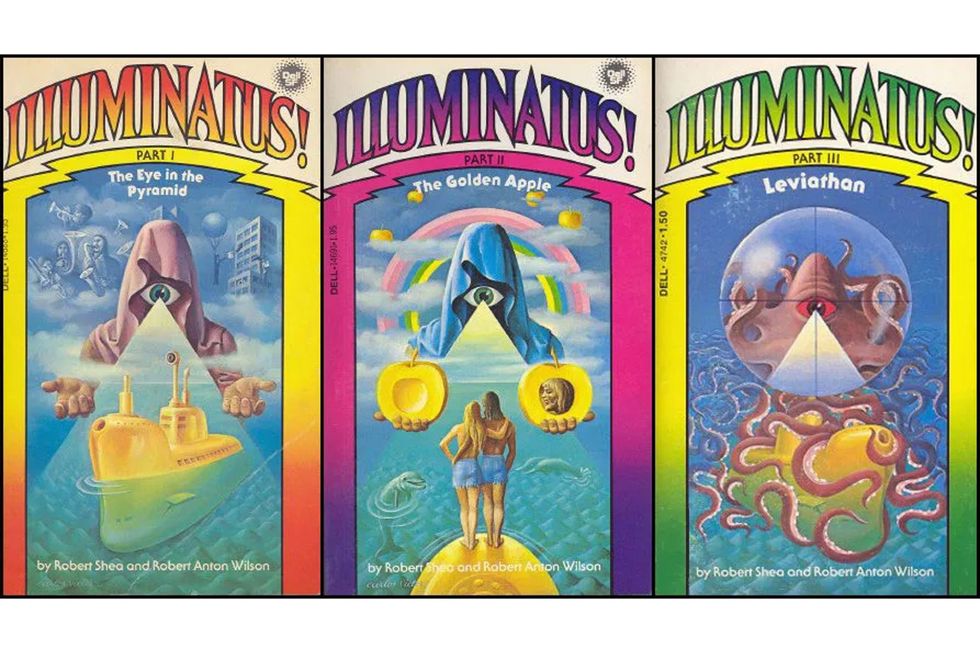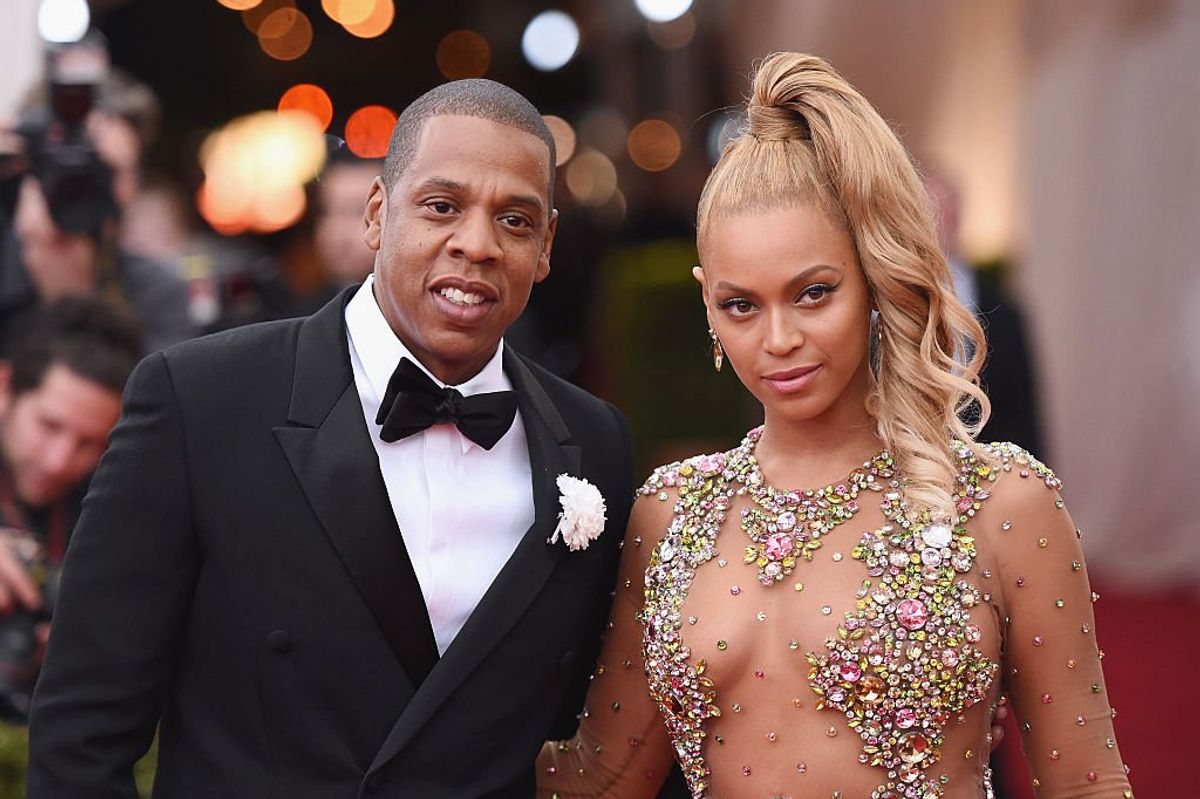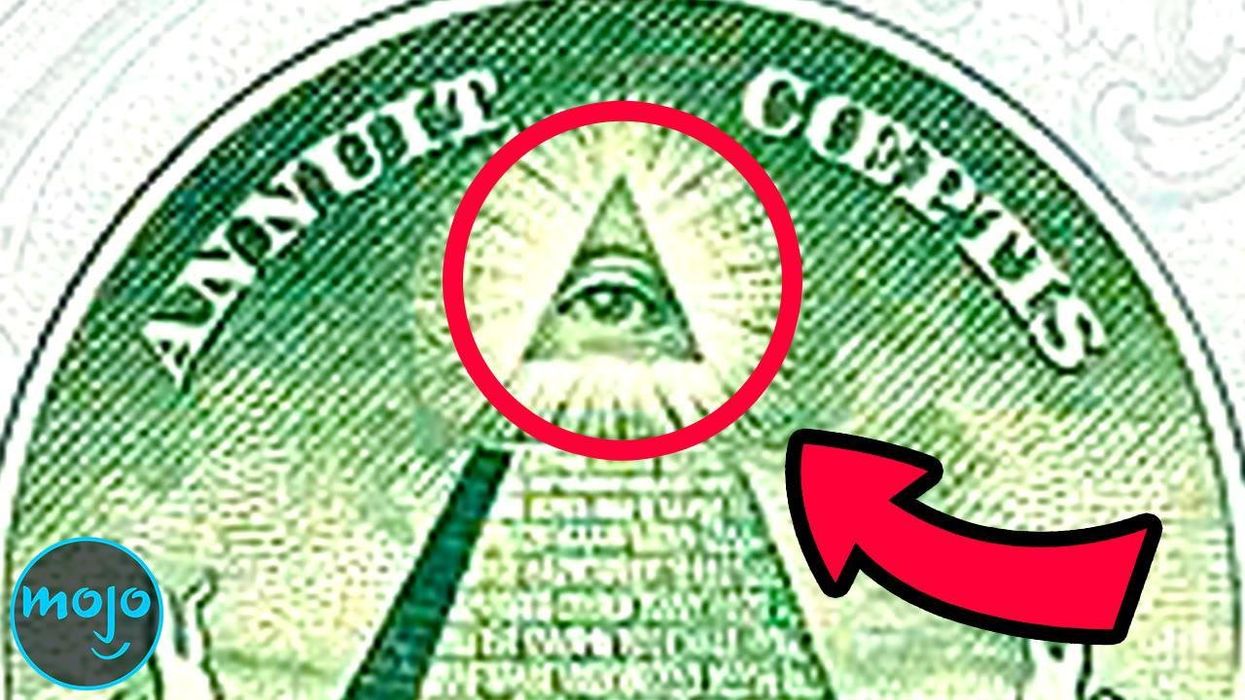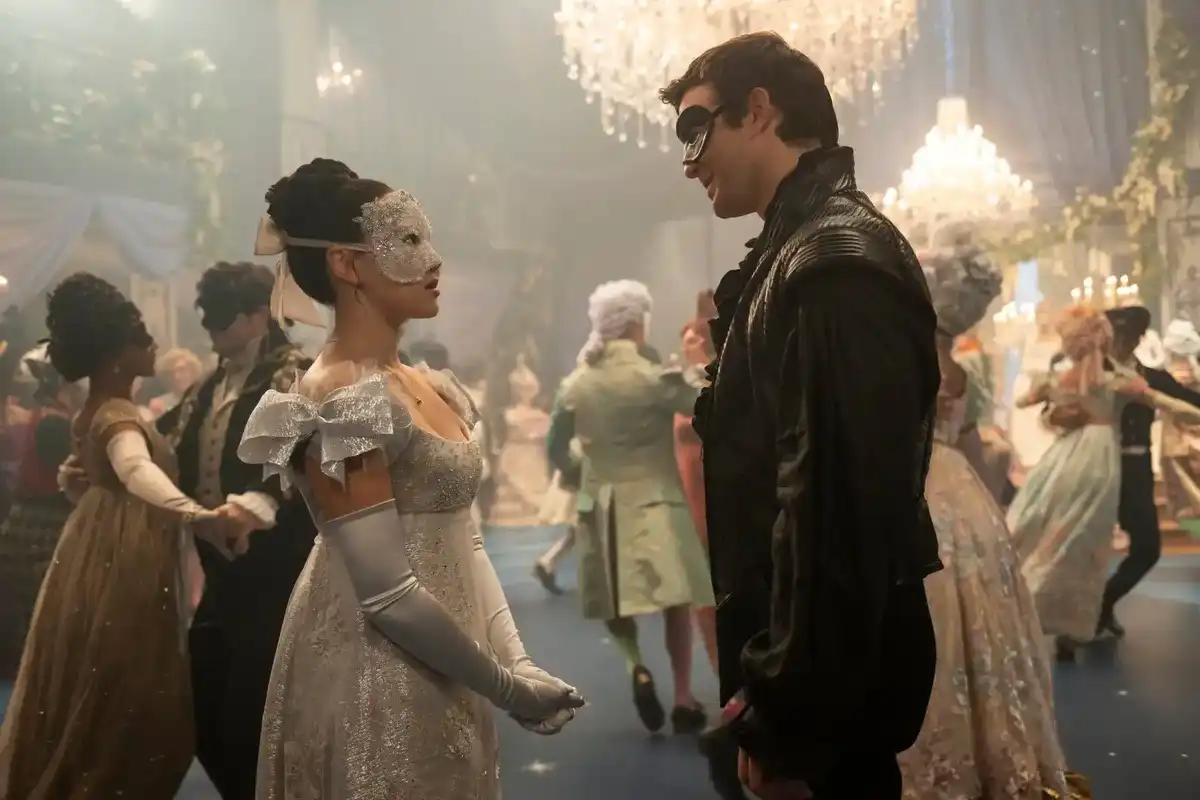Harriet Brewis
Feb 25, 2024
The Hidden History of the Illuminati
WatchMojo / VideoElephant
If there’s one thing social media loves, it’s a conspiracy theory.
From who shot JFK to the existence of aliens, we’re all fascinated by anti-establishment narratives, whether we believe in them or not.
Enter… the Illuminati, the centuries-old society that has become a byword for a corrupt elite.
The name is so powerful that it has begun to rule TikTok, becoming this year’s most talked-about counter-mainstream idea.
But who, or what, actually are the Illuminati? And why are they such a big deal?
The origins in a nutshell
The history of the name itself is rich, coming from the Latin illuminatus, meaning “enlightened”.
It has been applied to various groups since the late 15th century, whose members claimed to have an unique level of consciousness – either thanks to a higher power (namely God), or a special degree of intelligence, according to the Encylopedia Britannica.
However, these days, the group most commonly associated with the Illuminati was formed in Bavaria in 1776 by a professor of ecclesiastical law called Adam Weishaupt.
Weishaupt wanted to replace Christianity with a religion of reason by forging an alternative to the Freemasons for intellectuals and men of influence.
However, whilst the movement achieved notable success across Europe – operating from Italy to Denmark and Warsaw to Paris at its peak – it was eventually banned by an edict of the Bavarian government in 1785.
After this time, historical records contain no further activities related to Weishaupt’s Illuminati.
That was, until the 1960s.

The new Illuminati
In 1963, a text emerged out of America’s LSD-fuelled Summer of Love, titled ‘Principia Discordia’.
The book was, in essence, a parody centred on a brand new “faith” called Discordianism, whose purpose was to shake up society.
According to broadcaster David Bramwell, who has written extensively about the myth, its co-authors, Kerry Thornley, Greg Hill and Robert Anton Wilson “decided that the world was becoming too authoritarian, too tight, too closed, too controlled.”
They wanted to bring about disruption and chaos, and realised that “the way to do that was to spread disinformation,” Bramwell told the BBC.
To do this, they began disseminating misinformation via all available channels – using counter culture and mainstream media alike.
And the vessel for their mischief? Stories about the Illuminati.
To further their mission, the group took advantage of Wilson’s status as a journalist – he was an editor at Playboy at the time.
He, Thornley and their friend Robert Shea began sending fake letters to the magazine “from readers” discussing the secret, elite organisation. They then sent in more letters putting forward an opposing view – the idea was to get people talking and to sew confusion.
“The concept behind this was that if you give enough contrary points of view on a story, in theory – idealistically – the population at large start looking at these things and think, ‘hang on a minute’,” Bramwell explained.
“They ask themselves, ‘Can I trust how the information is presented to me?’ It’s an idealistic means of getting people to wake up to the suggested realities that they inhabit.”
Wilson and Shea became so invested in the whole endeavour that they penned a series of three novels titled ‘The Illuminatus! Trilogy’, which pinned some of the great mysteries of the time on the Illuminati, including who killed President Kennedy.

Among the most far-fetched theories they put forward was that Weishaupt (the society’s original Bavarian founder) had assassinated George Washington and assumed his identity as president of the US.
Subscribers to this hypothesis point to Washington’s portrait on the dollar bill, which they claim is actually the face of Weinshaupt, according to the BBC.
Yet, for all its wackiness and lack of mainstream sales – or, indeed, because of this – the trilogy became a cult hit.
It was even translated into a stage play in Liverpool which launched the careers of two of British acting’s biggest stars: Bill Nighy and Jim Broadbent.
Its success centred on how it presented these conspiracy theories: injecting them with just enough truth to make them plausible, however bonkers the idea.
Because the real strength of such theories lies not in their ability to convince, but their ability to confuse – to make us question if anything we’re told is true.
So why is it so big now?
Secret societies have existed for centuries, or even millennia, with their own mysterious rites, rituals and iconographies.
Owing to their exclusive nature, it’s unsurprising that some of the world’s leading figures have joined the ranks of some of these groups.
Take the Freemasons, for example. Their membership list reads like a who’s-who of Western history and pop culture, with Benjamin Franklin, Sir Winston Churchill and Nat King Cole among its alleged followers and alumni.
And where there’s mystery, there’s intrigue, and where there’s intrigue, there’s suspicion, particularly when it comes to power.
For those of us who are powerless and frustrated, it’s tempting to believe that there’s a conspiracy against us – that the establishment is ruled by a corrupt elite and that we are but innocent pawns in their sinister game.
Throw in some top celebrity collaborators – the likes of Beyoncé, Madonna, Jay Z and Donald Trump – and that’s a pretty compelling story.
But that's all it is, a story. And one that the stars themselves have shrugged off or even mischievously fuelled.
Plus if there’s one thing social media likes even more than conspiracy theories, it’s Easter Egg hunts: searching for hidden clues.
Happily, the Illuminati has those in abundance, most notably the so-called “Eye of Providence” – an eye set within a triangle, which happens to feature on the reverse of the American one-dollar bill.
Internet sleuths searching for these see them everywhere including, famously, in Jay Z’s diamond Roc Nation hand sign. “Proof!” they cry, “He’s even throwing his secret status in our faces!”

TikTok dominance
Turn to Gen Z’s favourite video-sharing platform, and you’ll see mentions of the apocryphal society everywhere.
Indeed, according to analysis of TikTok hashtags so far this year, “Illuminati” is the top conspiracy theory-related hashtag of 2024 – racking up more than 645,000 mentions by mid-February.
Most of the most popular related clips focus on celebs being grilled on whether they are part of the group or not – such as Kourtney Kardashian, Logan Paul and Cardi B – with viewers quick to point out clues “confirming” their status.
@itsweirdtime Celebs being asked about the Illuminati #celebrity #fail #liedetector #kourtneykardashian #kardashian #greenscreen
Ultimately, this all boils down to people’s love of question marks and “alternative facts”.
But it says more about the cult of celebrity than it does any “secret”, control-wielding cult.
Sign up for our free Indy100 weekly newsletter
Have your say in our news democracy. Click the upvote icon at the top of the page to help raise this article through the indy100 rankings
Top 100
The Conversation (0)














